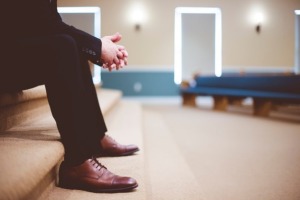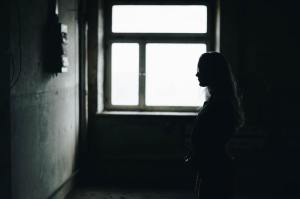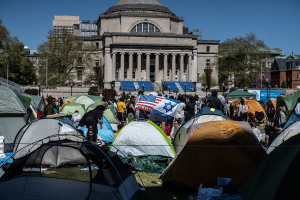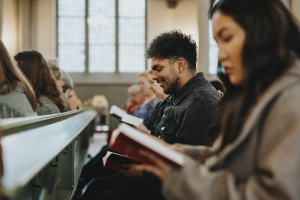The Long View of America's Dreamers: Before and After DACA
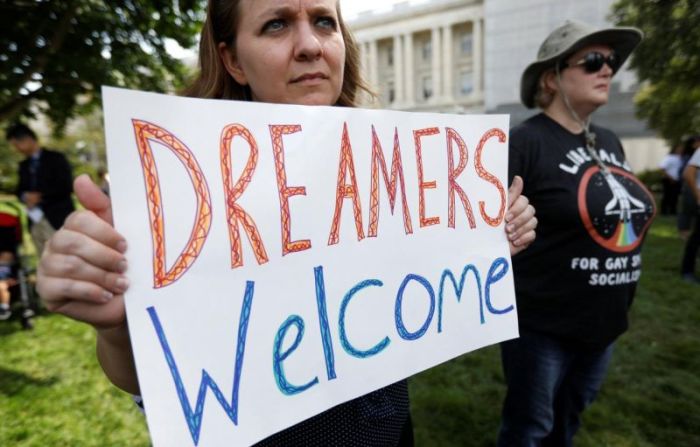
Our founders were sure of this—the dream needs to be stronger than the struggle.
America's dreamers had waypower. Marching from White Marsh to Valley Forge, they found a better way to survive. From the original seven articles to the Bill of Rights, and 17 Amendments since, they found a better way to live.
From Monticello to the Birmingham jail, their articulate letters expressed not themselves, but a people—souls fortunate to reside within the borders of the greatest democratic experiment.
America's dreamers manifested willpower. From "Doc Susy" Anderson to Ben Carson, their gifted hands and minds navigated surroundings and circumstances; their desire to heal hurting souls fueled their own.
They turned trenches cleared to survive challenges and injustice into liberty's foundation. From settlers facing Jamestown winters to Harriet Beecher Stowe's appeal to oughtness, our dreamers dug footers of hope.
Their dreams indeed were stronger than their struggles.
We celebrate those who stood. From Sojourner Truth to Erin Brockovich, they rose before audiences not out of personal gain but human dignity writ large.
America also remembers those who sat. From generals Grant and Lee at Appomattox to Rosa Parks and students at Woolworth's counter, they took seats after prolonged attempts of conflict resolution.
The dream needs to be stronger than the struggle, and some dreamers risked everything for one big thing—democracy's preservation.
From sharecropper Audie Murphy's Hell and Back heroics at Colmar Pocket, to Pat Tillman's early NFL exit to fight in Afghanistan, patriotism mattered. Arlington's 624 acres reveals a glimpse of freedom's real cost; President Obama reminded us, "Freedom is more powerful than fear."
Other dreamers endured ostracism that often amplified their voices. Like Ida B. Wells who wrote about her own peril after covering the lynching of friends. And David Walker's Appeal that spoke to fellow African-American activists, and into his son's future—born the grandson of a slave and died a veteran Massachusetts legislator.
Some of our heroic dreamers had civic persistence. Senator Bob Dole raised his left hand to swear into office because he gave his right one to save a friend in the Apennines. Like Senators Inouye and McCain, he didn't just count the cost but weighed the cause.
The dream needs to be stronger than the struggle, recognizing human limitations and infinite possibilities.
Most of our founding dreamers believed in the supernatural, that "we see through the glass darkly, but then we shall see face to face." They took hope in that we do see through the glass—we see enough to know the truth. That inherently right and wrong notions stem from a cause greater than ourselves—reflected in Bible verses inscribed throughout our U. S. capital and State capitals nationwide.
Dreamers saw the unique effectiveness of faith-based social initiatives. More God Less Crime would resonate with them. Chuck Colson modeled the transforming power of faith in his own life, and chronicled the Bible's positive influence in repentant prisoners' lives. Biblical foundations became a systematic response to a recurring need—the essence of an institution.
Dreamers learned to build. Some walls support steeples and crosses, like Paul Revere's perch on Boylston Street and the Romanesque towers over hallowed pews at Birmingham's 16th Street.
Our dreamers built other walls with bars to incarcerate criminals—laws often stemming from biblical teachings. And, laws reflecting collective wisdom, like Augustine's warning that "charity is no substitute for justice withheld." But concomitantly, the need for what Christianity Today calls Beautiful Orthodoxy.
Dreamers also learned to build doors. Like the big heavy gate near Tijuana, "The Door of Hope," intended to help vet entrance into America. Other doors, like Pell Grants, 21st-Century Scholars, and HOPE scholarships, built to open opportunities to education—to new knowledge and horizons.
The dream needs to be stronger than the struggle, and a common language helped solidify our culture.
When legislators spontaneously sang "God Bless America" on 9/11, it was more than a brilliant Ashkenazi immigrant's song, but all citizens' sentiment.
American dreamers process diverse threads in our national tapestry. From Tupac's Death Row lyrics and Vice President Quale's response, to Carrie Underwood's rendition of "How Great Thou Art," ideologies abound but remain unbound. A freedom Lee Greenwood sings about, and "they can't take that away."
The dream needs to be stronger than the struggle, and in whatever dialect or heritage, diverse groups can sing the same patriotic language.
Our founding dreamers understood pluralism. Not today's selective pluralism of the Academy, with all invited to sit at the discourse table—except evangelicals. Rather, it was all. Originally, Bibliophiles were often the conveners of conversations from New Haven, Nassau Street and Cambridge to DC and Philly.
Dreamers measured decisions toward good ends. Americans realize "we can never, we can never, be indifferent to the face of evil," as Secretary Tillerson shared at Warsaw's Holocaust memorial.
Americans developed a principled Ma'at, balancing interests of America's dreamers and those dreaming of America. We should never reject a modern version of Aliyah Bet's Exodus, or pin labels on any American.
Mature dreams link history to the human condition. Our military leaders realized the need to balance Pericles' classic "Funeral Oration" with the reality that it proved Athens' eulogy. American dreamers learned that being an "education to the world" does not prevent "uneducated Spartans" from marching against liberty. From Pearl Harbor to Oklahoma City, we've developed an indefatigable Masada resolve.
Heroic dreamers still abound, as President Trump reminded us in his 2018 State of the Union Address. Americans like Ashlee Leppert, David Dahlberg, Corey Adams, Steve Scalise, Preston Sharp, Celestino ("CJ") Martinez and Justin Peck are beacons of hope for dreamers present and future—including Hope Holet. They manifest a heralded American resolve and a desire "to stand and say, I'm proud to be an American."
For America's survival, dreams need to be stronger than struggles. Passionate yet principled dreams that know when to build both walls and doors. Doors that swing wide open for Ji Seong-ho to hoist freedom crutches before 320 million American viewers. And America needs walls that repel those who clutch ideologies bent on dismembering not only the idea of freedom, but like Ji Seong-ho's oppressors, freedom seekers.
While huddled masses continue to dream just to be in America, may our dreamers keep America just. The shortened lives of Otto Warmbier, Kayla Cuevas and Nisa Mickens remind us "Americans are dreamers, too," and always have been.
About the Author: Jerry Pattengale was a homeless high school graduate at 16-years-old. His books in 2017 included Faith Made Real, The Global Impact Bible, The World's Greatest Book, and The Book: The Narrative, History and Impact of the Bible. (4 vols.). Forthcoming books in 2018 include The State of the Evangelical Mind (IVP), The New [Ecumenical] Foxe's Book of Martyrs (Tyndale House, with Johnnie Moore), Telling the Truth with a Smile (Vol. 3, DustJacket), The Bible's Influence on Western Society (MOTB, 2 vols.), and Is the Bible at Fault? How the Bible Was Used to Cause Evil, Suffering, and Bizarre Behavior (Worthy). He is University Professor at Indiana Wesleyan University, a founding scholar and Exec. Dir. of Education at the Museum of the Bible, and holds various distinguished appointments.















